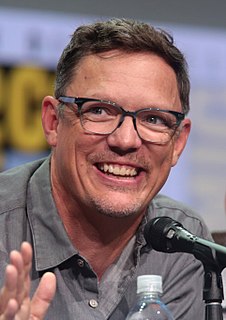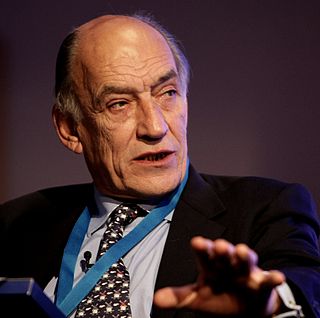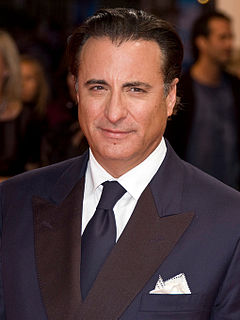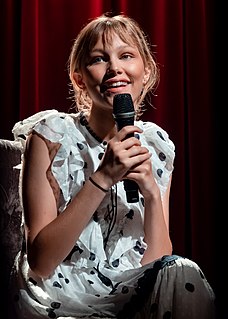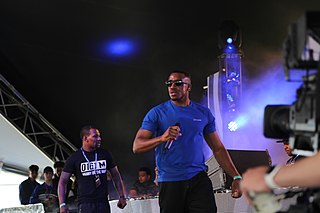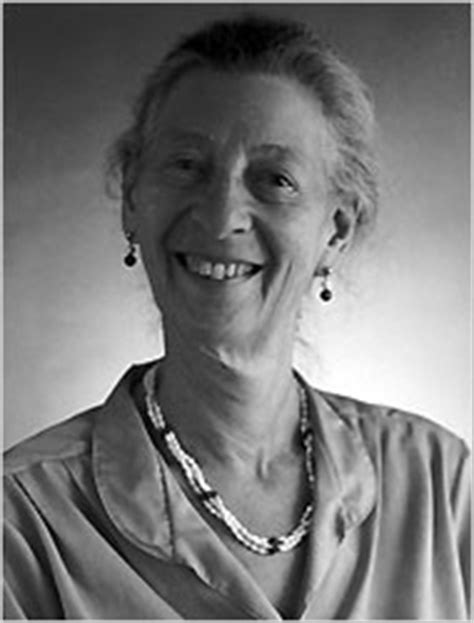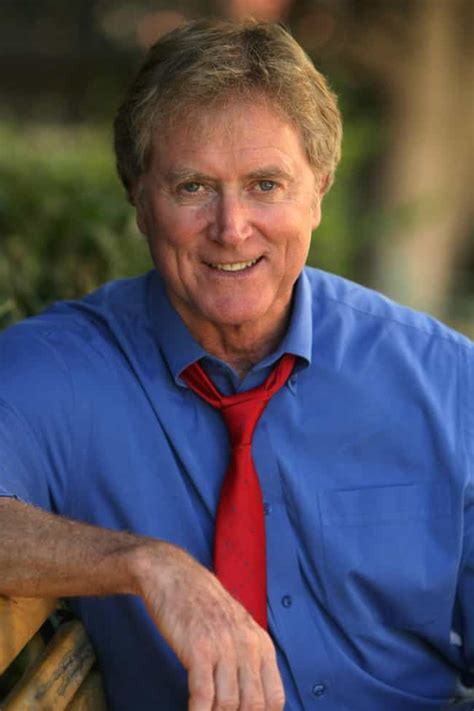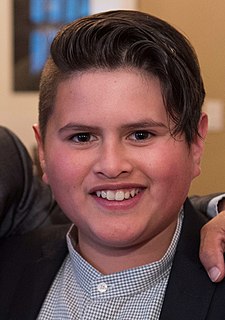A Quote by Cynthia Nixon
I think what Laura Linney was saying about teaching her all the lessons as a child actor, right, that's a whole ball of wax. That's a really mixed bag of stuff. I look at so many people that I knew personally or didn't know personally but who have ended badly, have died young, have been destitute - there are a lot of bad child-actor-gone-wrong stories, a very high percentage, but I think the thing about it is that a lot of those are Hollywood stories, and you don't have that same kind of a thing in the theater.
Quote Topics
Related Quotes
I've been so fortunate throughout my career, when I was doing theater, more theater than anything else, and when I was doing films that I got a chance just to do a broad range of things. In fact, a lot of my choices that I made were about that very thing. Every project that I had an opportunity to do or chose to do, I wanted it to be different from the last thing I did, and I think that's why I have a good, you know, I had kind of a diverse kind of résumé. I'm really - it's what I set out to do as an actor originally.
I think if you look at Hollywood as a whole and the type of content that they put out over the years, it's pretty homogeneous, right? They haven't done a really deep dive into a lot of stories of people of color. I don't want to say that there haven't been attempts, and there has been some great product that has come out over the years, but I think in 2016, we're in a world of struggle. It's not just about race, it's also about the LGBT community too and others.
I started in comedy when I first started as an actor on stage and doing improvisational theater and stuff like that. So a lot of people who know me know that sort of side of me. But I got the roles that I got as an young actor kind of steered me in a different direction, which were, at times, darker characters. And so comedy was not something that came easy for people to think of my in those terms.
There's something strange about theater. My characters consistently demonize elitism, but of course it's taking place in a theater where only so many people can see it. I've been in silly popcorn movies - the kind of thing that as an actor you might feel embarrassed about - but those movies reach many more people.
There’s something strange about theater. My characters consistently demonize elitism, but of course it’s taking place in a theater where only so many people can see it. I’ve been in silly popcorn movies - the kind of thing that as an actor you might feel embarrassed about - but those movies reach many more people.
A lot of my family weren't present when I was young, so I was getting a lot of stories told to me about them. Certain members of family had reputations because they were involved in crime and stuff like that. Then, when I was out on the streets, I'd be hearing more stories about them. So I think my whole upbringing was just heavily story-oriented.
You can read the best experts on child care. You can listen to those who have been there. You can take a whole childbirth and child-care course without missing a lesson. But you won't really know a thing about yourselves and each other as parents, or your baby as a child, until you have her in your arms. That's the moment when the lifelong process of bringing up a child into the fold of the family begins.
Personally I am very pessimistic. But when, for instance, one of my staff has a baby you can't help but bless them for a good future. Because I can't tell that child, 'Oh, you shouldn't have come into this life.' And yet I know the world is heading in a bad direction. So with those conflicting thoughts in mind, I think about what kind of films I should be making.
I think that television lately has been extremely dark and, in some ways, cynical but I also think that people who are writing those shows probably feel exactly as I do - that sometimes the darkness of a story can highlight the light in a story. There's a lot of cynical stuff but I think it may be even more in movies now where you see so many movies about cynical and corrupted characters. That's the state of many movies right now but movies, television, all of culture, there's always going to be a battle between the stories that are cynical and stories that are hopeful.
I think I can speak for a lot of people in that they would be pretty nervous about meeting Harrison Ford, and I was definitely one of those people. For me, and I think for all of us, once you get to know him, you do get on very well. He's such an amazing person and an amazing actor. There were so many young people on the set and he really pulled the best out of us.
I think that's why it's difficult for women when they watch TV and we see one version of a woman who is attached at the hip to a guy, and that's kind of her whole thing. You kind of go, 'I don't relate to this, I don't feel this.' You know? Maybe somebody does, but not everyone. That's the other thing about storytelling, is you can't represent everybody. You know, you can't seek to do that. You have to tell stories that you're interested in talking about and characters that intrigue you.

